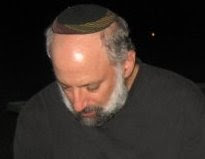Two news stories have really troubled me recently, both having to do with the Jewish community at large, but with direct implications for the Conservative Movement. The first was an interview with Michael Steinhardt, a well-known philanthropist who has made it possible for so many in the Jewish community to become involved in Jewish life. Perhaps Steinhardt will be most remembered for his contributions (of both time and money) to Taglit-Birthright Israel, arguably one of the most successful ventures in Jewish history. For this, he deserves much praise.
In speaking to the cable network Shalom TV, Steinhardt characterized non-Orthodox Jewish education as a failure, saying that it was a shandah (an embarrassing shame) and declaring that many of the participants he has met on Birthright are "Jewish barbarians" because of their lack of Jewish knowledge.
Even though he is certainly entitled to his opinion, logic suggests that I take Steinhardt's misguided comments personally. I've been involved with Jewish education my entire life – as a student, teacher and administrator in formal, informal, experiential, curricular and co-curricular settings - and I know many other people who can make the same claim.
I don't, however, take it personally, because it's one man's opinion (as Sholom Aleichem's Tevye said, "when you're rich they think you really know."). I not only vehemently disagree with Steinhardt, I can provide evidence that proves him wrong. I am one of thousands who is a learning Jew – educated from within Conservative Jewish institutions and secular university systems. I would hardly consider myself a "Jewish barbarian." The real shandah is in the statement itself.
Speaking of shandahs, the next news item definitely belongs in that category. For over twenty years, a group of women have prayed at the Kotel, the Western Wall in Jerusalem, almost every Rosh Hodesh (the beginning of the Jewish month). Women of the Wall has an eclectic membership, running the gamut of Jewish affiliation and identification. What brings these women together is an opportunity to experience a women's-only prayer experience at what some describe as Judaism's holiest site.
Women of the Wall has caused a political maelstrom in Israel over the years (isn't everything political in Israel?), but for the most part, they have managed to find a way to legally circumvent the overwhelmingly male domination of the Kotel and pray together away from the enforced gender separation.
The group often begins their worship in the plaza outside the Kotel, and when it's time to read Torah, it moves to an area known as Robinson's Arch, which is at the southern wall of the ancient Temple. As those of you who have been there know, it is out of sight of the western wall area and, therefore, out of sight of the other worshippers. Some people refer to Robinson's Arch as the "Masorti Wall" (the Masorti Movement is the Israeli equivalent of the Conservative Movement in North America), because it is where egalitarian services also take place on a regular basis.
This past November 18, Nofrat Frenkel, a member of both Women of the Wall and the Masorti Movement, was wearing her tallit and carrying a Torah from the plaza to Robinson's Arch. As she carried the scroll, people started shouting slurs and began to push and shove. Frenkel was eventually whisked away by police, but not for her own protection from the mob. She was arrested for disturbing the status quo. For carrying a Sefer Torah! For wearing a tallit!
This incident took place across an ocean, thousands and thousands of miles away from my home in Chicago. But this one I do take personally.
How is it that a direct denigration of my life's work is something I can dismiss as the rant of someone I simply don't agree with, while the harassment of a group I can't belong to (unless I do something quite radical) angers me so deeply?
Steinhardt's opinion is his. He owns it, he's entitled to say what he wants in this country. So are lots of people I don't agree with. But the Kotel belongs to the Jewish people. I know some make the argument that it belongs to the State of Israel, not the entire Jewish people, but even the defenders of the "status quo" at the Wall would agree that it belongs to Klal Yisrael.
So in essence, Steinhardt's words are his. The Kotel, however, is also mine. And while I respect the wishes of those who choose to live differently than I do, I expect them to respect my Jewish lifestyle, as well.
To their credit, many groups, including some Orthodox ones, have spoken up against the police actions at the Kotel. The people who started the ruckus in the first place, of course, received the education that Steinhardt extols. Might we call it successful? Or, might we say it is a shandah?
